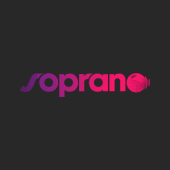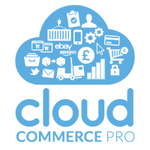What Are The Recent Trends In Omnichannel Communication Platform?
The world of communication is continuously changing, and with the advent of e-commerce and online marketing, organizations are increasingly using omnichannel communication platforms to give a consistent customer experience across all channels. This has resulted in the rise of various trends in the omnichannel communication platforms market.
When contemplating an omnichannel communication platform for your organization, you should be aware of the following recent trends:
1. Integration With Artificial Intelligence (AI): Automation and AI-powered solutions are gaining popularity in the customer communication space. Omnichannel communication solutions are now using chatbots and AI-powered virtual assistants to provide 24-hour customer service, address problems more quickly, and boost customer satisfaction.
2. Personalization: Today's clients want a tailored experience regardless of the medium through which they connect with a company. Omnichannel communication platforms increasingly include consumer data and analytics to deliver a more personalized experience, such as tailored recommendations and targeted marketing messages based on customer behavior and preferences.
3. Social Media Integration: Social media has become an important platform for businesses to connect with customers and raise brand awareness. Omnichannel communication tools are now merging with social media platforms, enabling businesses to effortlessly communicate with clients via their preferred social media channels.
4. Mobile-First Approach: With the increasing use of smartphones, organizations must adopt a mobile-first approach to their communication initiatives. This involves using mobile-responsive communication platforms, in-app messaging, and SMS to send notifications and updates.
5. Cross-Platform Communication: To give a truly seamless experience, omnichannel communication platforms are now linking various channels, including as email, chat, social media, SMS, and voice conversations, to establish a unified communication platform. This ensures that clients can switch between channels without losing any conversation or information. With these current changes in mind, selecting the ideal omnichannel communication platform for your company is critical. Assess your business needs and consider these trends when choosing a platform to assist you create a better client experience and reach your objectives.
Benefits Of Using Omnichannel Communication Platform
An omnichannel communication platform is a strong tool that organizations of all sizes can use to connect successfully with their customers via many channels. An omnichannel platform, whether via email, chat, social media, or phone, enables organizations to provide a seamless and consistent customer experience.
Here are some major advantages of employing an omnichannel communication platform:
1. Centralized Communications: One of the most significant benefits of an omnichannel communication platform is that it consolidates all communication channels into a single dashboard. This simplifies the communication process, allowing firms to better handle and respond to client inquiries.
2. Improved Customer Experience: With an omnichannel platform, customers may pick how they want to engage with the company, whether it's via email, chat, or social media. This enables for a more tailored and convenient customer experience, resulting in improved satisfaction and retention rates.
3. Increased Efficiency And Productivity: By consolidating all communication channels onto a single platform, firms can save time and improve efficiency. Customer service agents may seamlessly transition between channels, eliminating the need for numerous tools and systems. This leads to faster response times and happy consumers.
4. Data Tracking And Insights: An omnichannel communication platform collects data from all channels, revealing vital information about customer behavior and preferences. Understanding how customers engage with businesses allows you to customize communication methods and improve the entire customer experience.
5. Cost-Effective: Using an omnichannel platform can help firms cut costs by reducing the need for various tools and systems. It also helps to reduce the workload of customer support professionals, allowing them to manage more transactions in less time.
What Are The Key Features To Look For In Omnichannel Communication Platform?
An Omnichannel Communication Platform is a strong tool that allows organizations to efficiently interact and engage with their customers over several channels. However, with so many options available, customers may struggle to determine which platform is best suited to their needs.
To make an informed decision, below are the important qualities to look for in an Omnichannel Communication Platform:
1. Multi-Channel Integration: The first and most important characteristic to assess is the platform's capacity to combine numerous channels. This means that the platform should let you engage with your clients via a variety of channels, including email, SMS, social media, and live chat, among others. This will give your clients a seamless and uniform experience across all mediums.
2. Centralized Customer Data: A decent Omnichannel Communication Platform should include a centralized database containing all client information from all channels. This will give businesses a comprehensive perspective of each client's interactions, preferences, and behavior, allowing them to personalize their communication and improve the customer experience.
3. Customizing Capabilities: Personalization is an important feature of effective communication, and a high-quality Omnichannel Communication Platform should provide extensive customizing options. This includes elements like dynamic content, tailored marketing, and customer segmentation, which allow organizations to communicate with their customers in a relevant and meaningful way.
4. Automation: Businesses can save time and money by automating some communication operations. Look for a platform that includes automation features like automatic responses, processes, and triggers to reduce manual duties and streamline the communication process.
5. Analytics And Reporting: An Omnichannel Communication Platform should have real-time analytics and reporting to help you track the effectiveness of your communication activities. This data can assist firms in making more informed decisions and optimizing their communication approach for better results.
6. Seamless Interaction With Existing Systems: Investing in an Omnichannel Communication Platform does not imply changing your current systems entirely. Look for a platform that seamlessly integrates with your current CRM, help desk, or other communication tools, ensuring that all of your data and procedures are connected.
7. Scalability: As your organization expands, your communication requirements will change. As a result, it is critical to select a platform that can scale with your organization and handle increased communication volume and channels.
How Much Time Is Required To Implement Omnichannel Communication Platform?
The time it takes to implement an omnichannel communication platform varies depending on your company's individual demands and objectives. On average, it can take between a few weeks and several months to fully adopt and integrate the platform into your operations. The implementation process is divided into numerous stages: planning, configuration, testing, training, and launch.
During the planning stage, you must set your objectives, identify potential barriers, and develop a timeframe for the implementation process. Configuration is the process of tailoring the platform to your specific business requirements, such as modifying channels, workflows, and automation rules. This stage can take a long time, depending on the complexity of your procedures.
Testing is an important stage in the implementation process to confirm that the platform is functioning properly and producing the desired results. This method may require numerous iterations and can take anything from a few weeks to a month to finish. Training is crucial for properly implementing and using the omnichannel communication platform.
This stage entails training your team on how to utilize the platform efficiently, which can take several weeks to a month depending on the platform's complexity and your team's availability. Once all stages are completed, the platform may be launched, allowing your staff to easily engage with clients across numerous media. It is important to note that even after the launch, certain tweaks and fine-tuning may be required, adding to the implementation time.
Overall, building an omnichannel communication platform needs meticulous planning, customization, testing, training, and fine-tuning, which can take several weeks or months. It is critical to collaborate closely with the platform provider and dedicate adequate time and resources to ensure a smooth and seamless deployment.
Which Industries Can Benefit The Most From Omnichannel Communication Platform?
Omnichannel communication solutions are increasingly being recognized as valuable tools for simplifying customer service and engagement procedures across industries. These platforms enable organizations to create a seamless and uniform experience for their customers by centralizing communication channels such as phone, email, chat, social media, and SMS, regardless of which channel they want to communicate with.
Retail is one business that stands to benefit substantially from the implementation of an omnichannel communication platform. With the development of e-commerce and the increasing desire for a personalized shopping experience, merchants must be available to their customers across different channels while providing a consistent, seamless experience.
An omnichannel communication platform enables retailers to contact with customers via their preferred channels, offer real-time assistance, and even make personalized suggestions based on previous encounters. The banking and financial services industry can also benefit from omnichannel communication systems. With complex operations, sensitive information, and ever-changing customer expectations, banks and financial institutions must ensure efficient and secure communication with their customers.
An omnichannel communication platform may interact with financial systems, provide real-time chat with agents, and even allow for secure document exchange, making it an invaluable tool for the sector. The healthcare business, which is also undergoing a digital transition, is an excellent fit for omnichannel communication systems.
Patient communication is an essential component of healthcare services, and an omnichannel platform enables rapid responses to requests, appointment scheduling, and even remote consultations. The platform's connection with electronic health records simplifies administrative procedures, increasing overall efficiency. Another area that can profit from omnichannel communication systems is travel and hospitality.
With passengers expecting quick support and personalized experiences, the sector can leverage these platforms to communicate with customers across many channels and create a seamless journey. From booking and reservations to on-site help and post-trip feedback, an omnichannel platform can improve the overall customer experience in the travel and hospitality sectors.
Conclusion
In conclusion, selecting the correct omnichannel communication platform is critical for firms aiming to improve customer communication and overall efficiency. With so many options on the market, customers may find it difficult to make a decision. Before making a purchase, consider your company's needs, budget, and long-term objectives. Consider the features and functionalities that are critical to your organization, such as easy interaction with existing systems, multi-channel communication possibilities, and customizability.
To have a better grasp of current users' experiences, study and compare different platforms, as well as read reviews and testimonials. Additionally, inquire about the platform's security methods to protect critical consumer information. A dependable omnichannel communication platform should also provide good customer assistance to address any technical issues or concerns. This ensures that your company can always communicate effectively with its customers.
Investing in an omnichannel communication platform boosts customer satisfaction while also streamlining internal communication within your firm. Businesses that use the correct platform can improve their efficiency and productivity, resulting in higher revenue and growth. By taking all of these variables into account, organizations can make an informed decision when selecting an omnichannel communication platform that meets their needs and budget. So, take the time to research and compare several possibilities to select the ideal platform to assist your company survive in the digital age.
















